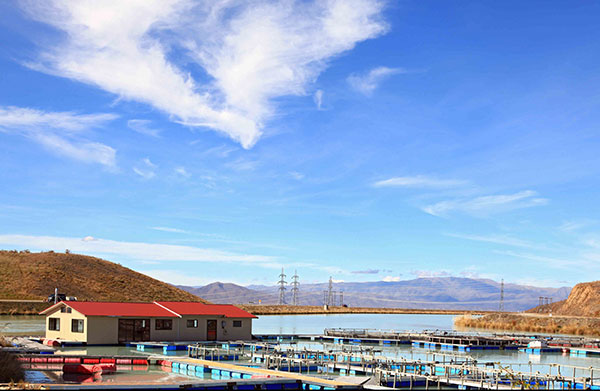Creating a dialogue with the aquaculture industry on responsible sourcing

Europe uses an estimated 35 million tonnes of soybeans, soymeal and soybean oil which is equal to 40 million tonnes of soybean equivalent and corresponds to approximately 12% of the global soybean production.
SPC and soymeal are used by fish and animal feed manufacturers. Soy protein concentrate (SPC) is produced by refining soybean meal to a higher degree. In ethanol extraction, sugars, soluble carbohydrates (oligosaccharides) and anti-nutritional factors (ANFs) are removed from the defatted soybean meal, leading to a higher concentration of protein.
Certification under ProTerra Standard for soy has been in effect since 2006, from Brazil to various countries, and from Argentina, Canada, and Eastern European Countries to various destinations. Of interest is the soy protein concentrate (SPC), a product originally developed in Brazil by industrial processor Imcopa, designed to replace marine ingredients in fish feed, the latter in a continuous decrease in terms of availability due to dwindling fish stocks in the oceans. SPC is renewable and, if produced in the right way, consists of a sustainable protein source for farming of livestock, mainly salmon aquaculture. Today Imcopa, Caramuru, CJ Selecta lead the production of SPC in Brazil.
Transparency of the system has been a request by players in the supply chain, such as NGOs.
One of the challenges supply chains face during the verification and certification process of the productive systems is the extension of territory under soy and the number of growers.
It is virtually impossible to audit each agricultural producer in Brazil or Argentina, and there could be hundreds or thousands supplying a given industrial processor.
It has been decided this year that the ProTerra Foundation will facilitate a sectorial round table among all companies that produce soy protein concentrate, with valid ProTerra certificate, in a constructive dialogue. The aim of this initiative is to identify the root-cause of possible shortcomings and support them with mitigation strategies.
The ProTerra Foundation pursues a more sustainable food and feed supply chain and expects companies adhering to the Standard to take the necessary diligent measures to ensure that they honour the ProTerra Vision and Mission – the international values of respecting human rights and the environment in their daily business. This includes their sourcing policies, for areas of business inside and outside the scope of certification all the same. Should any of the problems in sustainability be found, companies are to take immediate corrective actions to resolve the issues and avoid recurrence of the same or similar issues.
This dialogue will strengthen the partner’s commitment to conduct business with integrity, credibility, and to support and promote alignment of their sourcing, production, use and trading policies in agreement to the corporate social responsibility and environmental sustainability concepts outlined in The ProTerra Standard. Anne Grønlund of Rainforest Foundation Norway said: “We expect companies that promote sustainable soy products to be free from deforestation, human rights violations and illegalities in all parts of their production and sourcing, including third-party suppliers and we welcome initiatives that aim to strengthen certified companies’ commitments to deforestation-free and sustainable sourcing”.
The project will work to improve the traceability of soy in order to demonstrate environmentally and socially responsible production and to increase transparency in the value chain.
At the ProTerra Foundation we are confident that by a pre-competitive and collaborative approach, companies working in the salmon and animal feed chain can overcome obstacles and seize the existing opportunities in making responsible business conduct more evident and transparent.
We will continue working with the trustworthy certified organizations Imcopa, CJ Selecta and Caramuru in their endeavour to improve their efforts on the path of sustainability to contribute to increasing the responsible cultivation, processing and use of soy from Brazil in livestock feed – especially aquaculture feeds.
The project will work to develop and implement a supplier code of conduct with the purpose of ensuring that soybean farmers put into place safe working conditions and their employees are treated with respect.